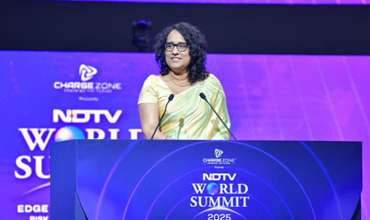Women Parliamentarians’ Caucus calls for equal access to digital technology for girls
Amid the ongoing COVID pandemic, let’s make every effort to ensure girls get equal access to digital devices, tech related skills and let’s renew our commitment to provide the best environment for development of girls & increase awareness about importance of a safe environment for them says Dr. Sudarshini Fernandopulle, Chairperson of the Women Parliamentarians’ Caucus of the Ninth Parliament of Sri Lanka.
Our effort is also to ‘Bridge the digital divide to build back better’ pledges Chairperson of Women’s Caucus on the occasion marking international Day of the Girl Child 2021.
Following are excerpts of her message.
‘With the advent of the COVID pandemic, Sri Lanka has faced, and will continue to face, a fairly fast transition to a more digital-centered form of living. This digitization has touched most aspects of our day-to-day lives but this is mostly visible in the areas of education and employment.’
A survey undertaken in 2018 reported that only 47.2 per cent of Sri Lanka’s population below the age of 25 years ‘still do not have access to internet’. This is a mere estimate, and it is likely that many more suffer exclusion in relation to our new normal and digitized world of learning, some of them in fact in that critical stage of school-to-work transition.’
‘A pre-pandemic study by UNICEF/IPID done in 2018, reports that specifically, “among the 11 - 18-year old’s, 67.6 per cent boys reported having online access compared to just 33.1 per cent of girls. Regional variances find the rural and plantation sectors trailing. If this trend continues, technology as much as it is a game-changer, can also exacerbate inequities amongst boys and girls.’
‘So far, we have achieved and maintained gender parity in access to education which is free for girls and boys alike up to the age of 16 years. Sri Lanka boasts a literacy rate of 91.7% with slightly lower rates nevertheless, recorded for women, as compared with men. However, given the impact of the pandemic and the paradigm shift to the model of learning from desk to digital, there is a fear that the gains made, and particularly gains for girls in the rural and plantation sectors will suffer a claw-back in educational symmetry. With the trending over-dependence on virtual learning and access to information, the increase in domestic violence, poverty on a downward spiral, it is very likely that the girl child has more to lose and excluded from mainstream education, smooth school to work transition and decent employment, compromising on the promise of substantive equality and non-discrimination.’
‘Recognizing this gap and asymmetry of the negative impact of COVID on the girl child, the Caucus stands behind all girls and women to realize their full potential as we build back together, and we build back better!’
-
Still No Comments Posted.












Leave Comments